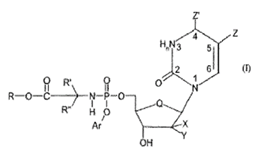The End of Mediation?
One the most surprising and in many ways depressing passages of the IPO's publication "From ideas to growth: Helping SMEs get value from their intellectual property" (April 2012) is the statement on page 17 that only 13 mediations have been conducted by the IPO in the past 5 years, and just one in the past year. Because the usage is so low the IPO is thinking of discontinuing the service altogether unless it can be adapted. The IPO has requested feedback on perceived awareness levels and how, if the service does continue, the IPO might increase its visibility.
The IPO's mediation service is extraordinarily good value. A full day mediation in Newport facilitated by a CEDR (Centre for Effective Dispute Resolution) trained mediator with specialist knowledge and experience of intellectual property including accommodation costs £750. The same mediator will come to the IPO's London premises for just another £250. So why is the service used so little?
Not because the IPO's service is rubbish. I have used it as counsel and found it satisfactory (see "Practice: Mediation in the IPO" 2 Oct 2009). Is the work going elsewhere? Probably not. The Arbitration and Mediation Centre has managed only 270 arbitrations and mediations since 1994 (WIPO Caseload Summary), CEDR Solve's Intellectual Property page is very modest. Is intellectual property inherently unsuitable for mediation? Well I have resolved such disputes satisfactorily as you can see from the case studies on my website, namely a computer supply dispute and a trade mark opposition.
I think there are a number of explanations for the low take up of the IPO's mediation service. First, commercial and litigation solicitors tell me that they are getting far less intellectual property work nowadays. Getting rid of employees and getting out of commitments such as shareholders; agreements and partnerships seem to be the matters upon which my contacts in northern commercial law firms are consulted most frequently. Secondly, with the new Patents County Court rules the risks and costs of litigation have come down (see my article on the "New Patents County Court Rules" 31 Oct 2010). Thirdly, there are other forms of ADR such as examiners' opinions on patent validity and infringement and domain name dispute resolution services which appeal more to patent and trade mark attorneys and specialist solicitors. Fourthly, there are urban myths in this area of practice such as intellectual property insurance is useless, references to the Comptroller under s.61 (3) of the Patents Act 1977 or, indeed, that there are no specialist intellectual property counsel outside London which lead to bad advice. Fifthly, mediation is getting a bad name because it an extra expense resorted to by the party with the longer pocket to force concessions from the weaker party.
If anyone wants to discuss these matters please call me on 0800 862 0055 or contact me through Facebook, Linkedin, twitter or Xing, or through my contact page.
The IPO's mediation service is extraordinarily good value. A full day mediation in Newport facilitated by a CEDR (Centre for Effective Dispute Resolution) trained mediator with specialist knowledge and experience of intellectual property including accommodation costs £750. The same mediator will come to the IPO's London premises for just another £250. So why is the service used so little?
Not because the IPO's service is rubbish. I have used it as counsel and found it satisfactory (see "Practice: Mediation in the IPO" 2 Oct 2009). Is the work going elsewhere? Probably not. The Arbitration and Mediation Centre has managed only 270 arbitrations and mediations since 1994 (WIPO Caseload Summary), CEDR Solve's Intellectual Property page is very modest. Is intellectual property inherently unsuitable for mediation? Well I have resolved such disputes satisfactorily as you can see from the case studies on my website, namely a computer supply dispute and a trade mark opposition.
I think there are a number of explanations for the low take up of the IPO's mediation service. First, commercial and litigation solicitors tell me that they are getting far less intellectual property work nowadays. Getting rid of employees and getting out of commitments such as shareholders; agreements and partnerships seem to be the matters upon which my contacts in northern commercial law firms are consulted most frequently. Secondly, with the new Patents County Court rules the risks and costs of litigation have come down (see my article on the "New Patents County Court Rules" 31 Oct 2010). Thirdly, there are other forms of ADR such as examiners' opinions on patent validity and infringement and domain name dispute resolution services which appeal more to patent and trade mark attorneys and specialist solicitors. Fourthly, there are urban myths in this area of practice such as intellectual property insurance is useless, references to the Comptroller under s.61 (3) of the Patents Act 1977 or, indeed, that there are no specialist intellectual property counsel outside London which lead to bad advice. Fifthly, mediation is getting a bad name because it an extra expense resorted to by the party with the longer pocket to force concessions from the weaker party.
If anyone wants to discuss these matters please call me on 0800 862 0055 or contact me through Facebook, Linkedin, twitter or Xing, or through my contact page.

Comments